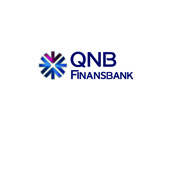

Executive vice president, chief legal officer, legal affairs | QNB Finansbank




Ali Yilmaz
Executive vice president, chief legal officer, legal affairs | QNB Finansbank
Legal affairs director | Trans-Anatolian Natural Gas Pipeline (TANAP)
Verging on megaproject status, the Trans-Anatolian Natural Gas Pipeline (TANAP) is a multi-billion dollar pipeline project that aims to transport natural gas from the Caspian Sea to Turkey and Europe....
One of the biggest transaction I’ve been involved for the last two years period was a governmental project that concerns the motorway, envisaged to connect the specific district of Aegean region to the network of highways on the northwest of Turkey. The Project includes financing, design, construction, operation, maintenance and repair of the motorway. The Project comprises a total of approximately 88km motorways and connection roads. As QNB Finansbank we are acting as Facility Agent and Security Agent on behalf on Mandated Lead Arranger’s.
In terms of litigation proceedings, we have participated in complex litigation procedures with a shipping project that is being conducted in many jurisdictions. The Vessel has been built in Turkey under a loan provided by QNB Finansbank and registered in the Turkish International Ship Registry, however, the ultimate owner of the Vessel, who is the joint and several debtor, was subject to two Worldwide Freezing Orders issued by an English High Court for inducing breach of contract and unlawful means conspiracy to defraud. We have participated in settlement proceedings with insurance companies and the other applicants and contributed the dismissal of the Worldwide Freezing Orders.
The Company’s clear aim is to be the sector leader within the sector not only related to growth but also to lead the sector with regards to enhancing technology, simplicity, range of product portfolio, customer digitalisation, human resources and other areas.
Legal Department should act as a front office rather than taking the back seat. This would require to be a reliable business partner via proposing creative solutions without avoiding to remain compliant with all aspects. It will also include taking responsibility for issues within legal department’s control and liaising with other departments as required to result in improved overall processes and results
Proactive communication, on a regular basis, with the management and business or sales leaders in the territory is the key factor for contributing to the improvement of the Company in order to drive simplicity and scalability. I kindly suggest in-house lawyers contributing to newsletters in particular with regards to change in law that directly affects finance sector, being proactive to identify areas where Legal Department could improve and operate better and be the key implementer of these changes, conducting an efficient risk assessment and management processes to business partners by providing a straightforward overview of legal risks and how to describe or remove them.
Banking sector is heavily regulated due to sectoral and national safety measures specific to banking sector and thereby constrains the usage of state-of-the-art technological products such as cloud services. Nevertheless, notwithstanding the legal constraints the Company uses the utmost efforts to implement internal IT services and products. The most prominent internal software are related to litigation processes and a specific data base and communication system to keep the legal opinions in the most accurate and accessible way for any legal colleague. In addition we surely rely on some external products which do not have any integration to our bank’s systems such as, for instance, a standard judicial precedents system.
In any event finance sector will follow the technical developments and become less conservative in this regard. The reason for this is it would really be unwise not to chase the new tech as artificial intelligence in legal services is rapidly growing and some human labour will be insufficient thus I do believe finance sector will eventually catch up with the state of the art technology.
There were some laws and regulations which were enacted from scratch and some changes in certain laws that had huge influence not only related to our company for the whole sector. The Communiqué regarding the Decree No. 32 Regarding Protection of the Value of the Turkish Currency, change in bankruptcy and enforcement law with respect to composition with creditors, regulation on financial restructuring of debts.
The aforementioned new legislations and changes in law were fundamental and affected the business practices. In fact this was not a mere affect but it was an entire change from upside down which required a full adaptation to new practices. Goes without a saying the business was fully relying on legal to show the way.
The most efficient and important technique is to choose the correct external law office(s) based on their experience and reputation in the field we need. The real idea is to avoid full dependence and to be able to remain fluid but reporting line should be in timely manner. Once this is resolved the next challenge is to establish a healthy and transparent relationship. In-house lawyers should respect to the independency of external counsel whereas external counsel should fulfil the information or documentation flow back and forth. The important aspect of this relationship is that in-house legal department should be updated at all times at a sufficient level.
Everyone says they are aware of the new digital revolution. But how much do they really know about the digital revolution? The industrial revolution was about mass production but the digital revolution is converting from analogue technology to digital technology and globalisation.
It has radical impact on transforming the current business models via enhancing existing products andbusinesses with digital capabilities. Legal services are not indifferent from any other business. According to reliable researches it is determined that any profession will be transformed by using artificial intelligence instead of human labour. Therefore, I am of the opinion that future legal counsel will have to adapt in communicating with artificial intelligence due to the rapid efficiency.